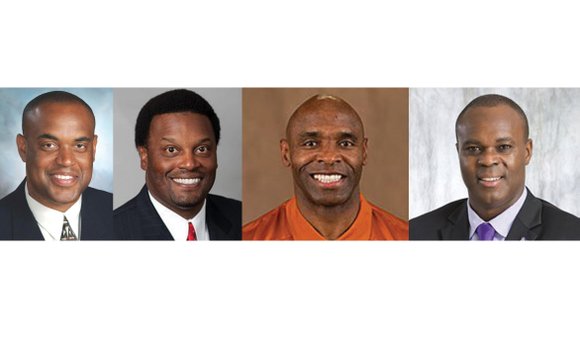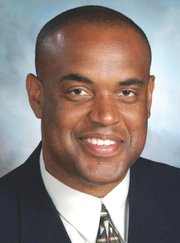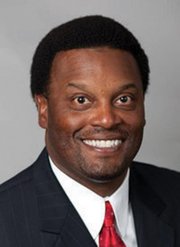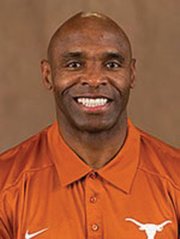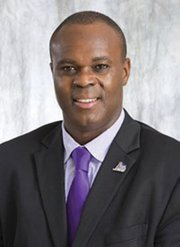Few black coaches at top tier teams
Fred Jeter | 10/30/2015, 8:05 p.m.
On NCAA football’s top tier — Bowl Championship Subdivision (BCS) — statistics show a dramatic disparity.
African-Americans comprise 53 percent of athletes but only 11 percent of head coaches, according to a 2014 report of The Institute of Diversity and Ethics in Sport.
The report was authored by Dr. Richard Lapchick of the University of Central Florida and director of the institute.
The under-representation of African-American coaches among the 128 BCS members may worsen before getting better.
Trouble signs aren’t far away.
Coach Mike London, the University of Virginia’s beleaguered fifth-year coach, is sitting on what is commonly known as “the hot seat.”
London is not alone. Temperatures are rising on gridiron coaching seats held by white and black coaches all across America.
Longhorns Coach Charlie Strong at the University of Texas and Purdue University’s Darrell Hazell are among African-American coaches feeling the most heat.
Never has the coaching chair been smoking more at U.Va., where Coach London is 25-43 overall and 12-31 against ACC competition. His current season is 2-5 overall, 1-2 in the Atlantic Coast Conference and attendance at games is dwindling.
Barring a major turnaround, Virginia is gazing at a fifth straight losing season.
Based on their records at the top level, African-American FBS coaches held in highest regard are Kevin Sumlin at Texas A&M University, Ruffin McNeil at East Carolina University, James Franklin at Penn State University and Stanford University’s David Shaw.
Coach London is the sole African-American head coach at Virginia’s three Football Bowl Subdivision (FBS) schools — U.Va., Virginia Tech and Old Dominion University.
There are two well-known African-American coaches at majority-white Football Championship Subdivision (FCS) schools in Virginia.
Turner Gill is 26-18 overall at Liberty University, but a struggling 3-4 this season. Gill is former head coach at FBS University at Buffalo (20-30) and University of Kansas (5-19).
Everett Withers, interim head coach at University of North Carolina in 2011 (6-5), is now 16-5 in two seasons at James Madison University, including 7-1 this season. Withers’ upward mobility may be slowed by his 59-49 nationally televised loss to the University of Richmond last Saturday — a contest that drew ESPN’s College Game Day coverage.
Latrell Scott, now at Norfolk State University, is a former UR coach.
So why so few African-American coaches when black players have become a majority on many teams?
The Diversity and Ethics report offers this information regarding FBS affiliates:
• Athletic directors at FBS schools are 77 percent white men and 6 percent white women.
• FBS presidents are 75 percent white men and 13 percent white women.
• Of campus leadership positions, 88.2 percent are held by white men and women.
• All 11 FBS Commissioners are white men.
There is not a long history of African-American coaches in college football’s premier division. The first was Willie Jeffries, hired at Wichita State University in 1979.
Jeffries was 21-32-2 before Wichita State dropped football entirely in 1986. Jeffries had substantial success at South Carolina State University before going to Wichita State.
Currently, rarely are coaches from HBCUs considered for FBS positions at majority-white schools.
This is likely due to the overwhelming majority of those in decision-making positions are white. It also is due to the absence of any playoff success by coaches from the historically black FCS conferences, MEAC and SWAC.
SWAC no longer participates in NCAA playoffs and MEAC has struggled mightily. MEAC teams are 6-28 in the playoffs and haven’t advanced since 1999.
The most-traveled paths to FBS head coaching positions are through stints as assistants at FBS schools and serving as assistants and head coaches at majority-white FCS schools.
There are no historically black FBS schools.

